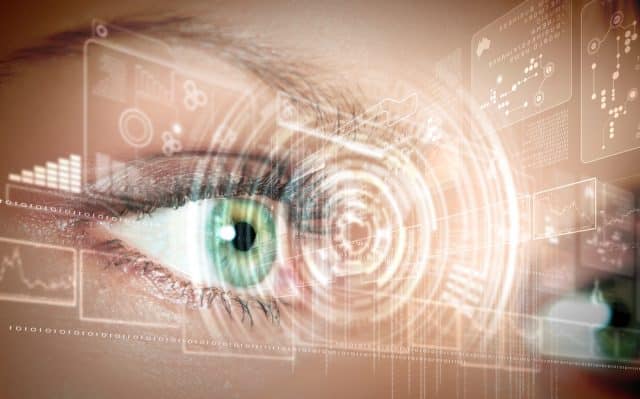Are biometrics the future for security? [Q&A]

As technology has become a key part of more areas of our lives, ensuring our information remains secure is essential. The majority of data breaches are due to credentials that have been compromised in some way so we really need to look beyond passwords.
Biometrics is one area that's gaining in popularity so we spoke to Tina D'Agostin, CEO of biometric access control specialist Alcatraz AI, to discuss the rising popularity of AI-powered biometric security solutions, and its benefits.
BN: Why are biometrics starting to play a greater role in our everyday lives?
TD: As the AI industry continues to grow more and more everyday, the technology is evolving to a point where it can be extremely beneficial in our daily lives. With biometrics specifically, there is a rising popularity in harnessing its advanced power within the security industry. Nowhere is this more evident than in the transformation of entry and exit processes at airports, or even how we unlock our mobile phones. Biometric security solutions are offering a safer and more secure access control method in an age where security threats and risks have advanced as well. While these new technological advances don't come without their challenges and learning curves, biometric security is transforming the way we look at securing spaces.
BN: How secure are biometrics compared to alternatives like passkeys, physical tokens, etc?
TD: AI-powered biometrics play a crucial role in enhancing the accuracy and reliability of security systems. Specifically with Alcatraz AI and our flagship product, the Rock, your face is your credential. Biometric authentication will scan your facial features, which cannot be stolen or duplicated. Biometric security offers a higher level of access control protection, as opposed to traditional and outdated security methods such as passwords, keypads and others that have the potential to be shared, lost or stolen.
BN: Why is facial recognition better than other methods like fingerprints or voice recognition?
TD: Facial biometrics offers a seamless and contactless security solution, and has multiple key benefits as a biometric security method:
- Enhanced Security with Facial Authentication -- Facial authentication is a holistic solution for enterprises looking to strengthen security, create an improved experience, and comply with regulations and laws around biometric information and PII.
- Convenience -- This solution eliminates the need for traditional and outdated security methods like access cards, keypads, and passwords.
- Accuracy -- Utilizing AI-powered biometrics, access control technologies like Alcatraz's latest offering, Rock X, use cameras with stereoscopic vision to determine depth and liveness, accurately scanning each face.
- Fast and Frictionless Access Control Authentication -- More than 70 percent of businesses are susceptible to tailgating breaches. Facial authentication detects and authenticates users in real-time to prevent unauthorized access to secure areas and reduce the risk of theft or data breaches.
- Availability to a Wide Variety of Sources -- There are many applications that can benefit from the use of biometrics, including stadiums and arenas, college campuses, workplaces, data centers, healthcare facilities, airports and more.
BN: Where does artificial intelligence fit into the process?
TD: The technology used within biometric authentication focuses on analyzing distinctive facial features, tying the individual to their authentication method. Artificial intelligence plays a crucial role in enhancing the accuracy and reliability of facial authentication systems by learning the faces more thoroughly each time someone is provided access to a secure location.
The challenge here is ensuring the system has the capability to perform accurately based on non-ideal lighting, facial expressions and poses. Thanks to AI algorithmic learning, biometric authentication systems are able to learn from a vast dataset of facial images over time, helping them combat these external challenging conditions. With this, AI helps distinguish real human faces from inauthentic photographs, keeping the system safe and secure against deceitful breach attempts.
BN: What's needed to ensure the data used for authentication remains secure?
TD: In some facial recognition systems, individual images are scraped from the internet and are used without consent, relying on the collection of biometric data matched against those photos to provide secure access. To address privacy concerns like this, Alcatraz AI has developed multiple features to ensure the privacy of its users and is designed to comply with BIPA, CCPA, GDPR, and more.
For example, as opposed to using an actual picture of the user as the facial verification tool, Alcatraz uses patented technology that converts 3D images exclusively into 'data blobs.' This means the data can never be reconstructed into the original image that’s created–preventing any disclosure of personal images. Additionally, to keep biometric data secure, it is vital that all data is encrypted at rest and in transit, including user enrollment data in the form of Personal Identifiable Information (PII). As another added level of protection, Alcatraz AI creates user profiles that do not include personal data such as name and email address, but instead fuses with badge data for identity authentication. Biometric data is very personal and needs to be protected to have a secure yet functional facial authentication system.
Image credit: SergeyNivens/depositphotos.com
